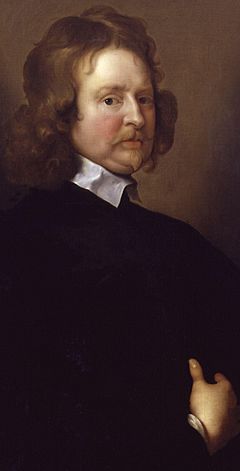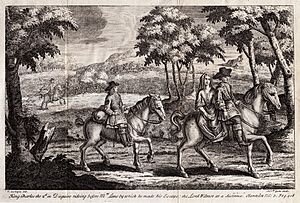The History of the Rebellion facts for kids
The History of the Rebellion is a famous book written by Edward Hyde, 1st Earl of Clarendon. He was an important advisor to two kings, King Charles I and King Charles II.
This book tells his side of the story about the Wars of the Three Kingdoms. These wars were a big conflict in England, Scotland, and Ireland.
The book was first published between 1702 and 1704. Its full title was The History of the Rebellion and Civil Wars in England. It was special because it was the first detailed account written by someone who was actually there and played a key role in the events.
Why Edward Hyde Wrote It
Edward Hyde, also known as Clarendon, started writing his original History between 1646 and 1648. This first version only covered events up to March 1644.
Later, after he was sent away from England, he wrote his own life story. This was called Life and he wrote it between 1668 and 1670.
In 1671, he went back to his History book. He added parts of his Life story into it. He also wrote new sections that covered events after March 1644. This made the book much more complete.
What the Book is About
Clarendon used The History of the Rebellion to share his own ideas. He subtly showed his views on how the Royalists, who supported the King, should have acted.
For example, he disagreed with the King's wife, the Queen. She was in Paris and thought King Charles should make deals about the Anglican Church. This was to get help from the Scottish Presbyterians against Parliament.
Clarendon strongly believed that the Church of England should not be changed. He thought that by changing the Church's structure, the King's advisors were hurting the very cause they were fighting for.
Clarendon's own political views influenced his writing. He played down the reasons why people accepted religious compromises. He claimed that before 1640, most Protestants were happy with the Anglican Church. He said that any unhappiness came from a small, troublesome group.



